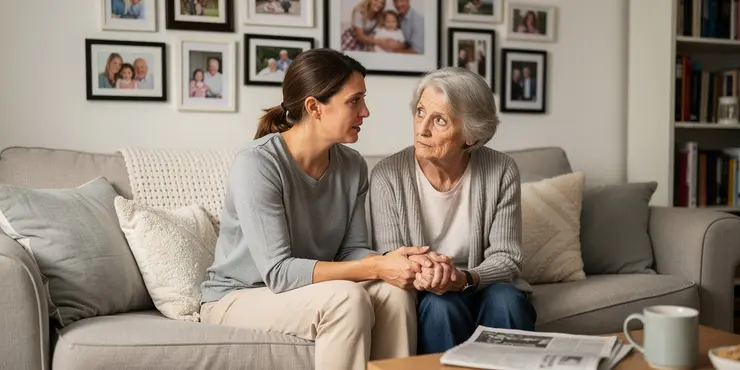
Find Help
More Items From Ergsy search
-
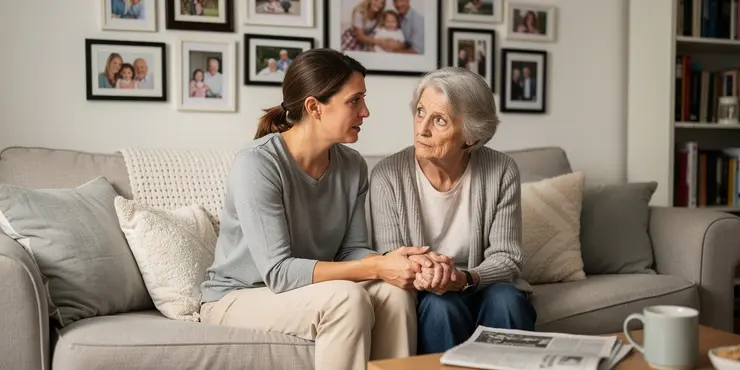
Can dementia affect younger people?
Relevance: 100%
-
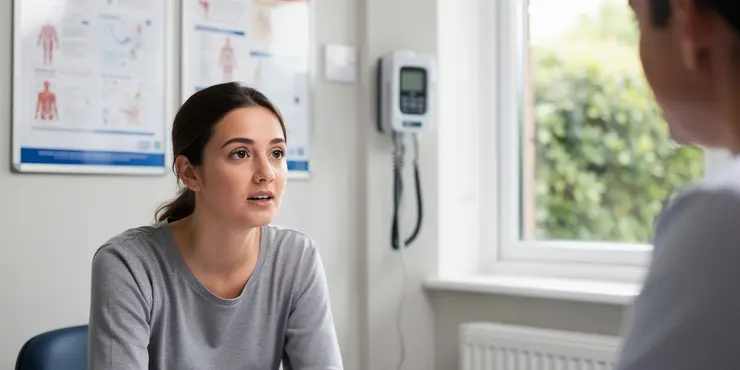
Are younger people being diagnosed with bowel cancer more frequently?
Relevance: 59%
-
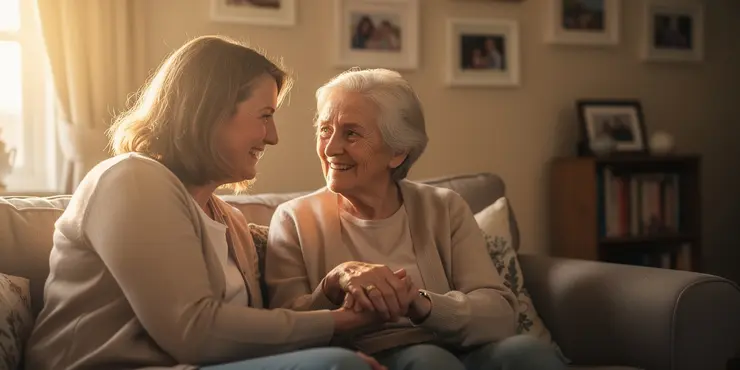
Are there any support groups for people with dementia in the UK?
Relevance: 59%
-
Can dementia affect younger people?
Relevance: 56%
-
Can dementia affect younger people?
Relevance: 56%
-
Living with dementia | NHS
Relevance: 49%
-
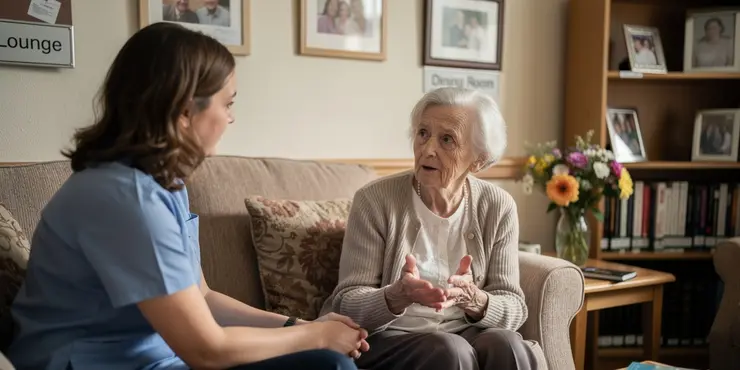
The role of care homes dedicated to caring for people living with dementia and memory loss
Relevance: 48%
-

What is dementia?
Relevance: 46%
-
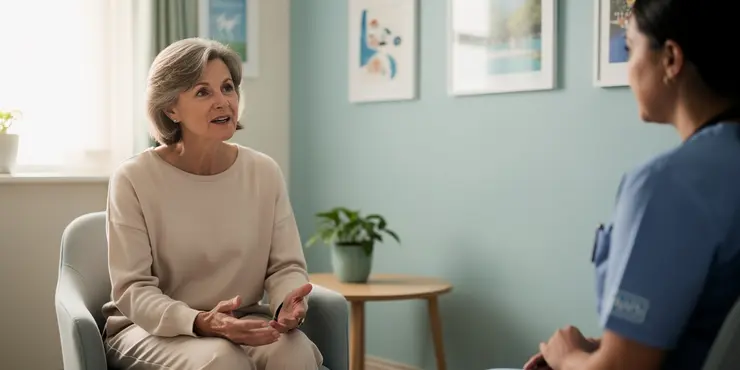
Early onset dementia | NHS
Relevance: 45%
-
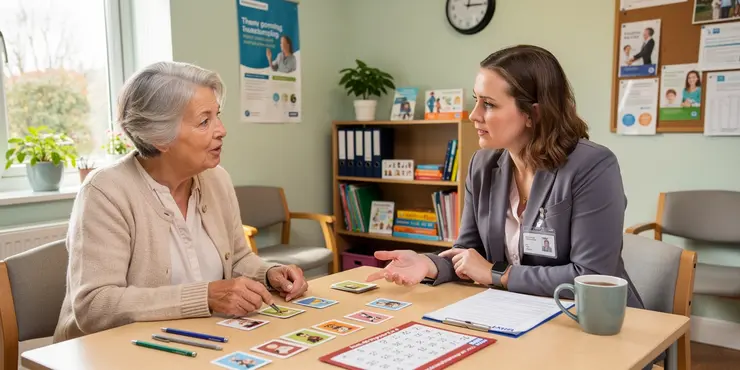
Is there a cure for dementia?
Relevance: 45%
-
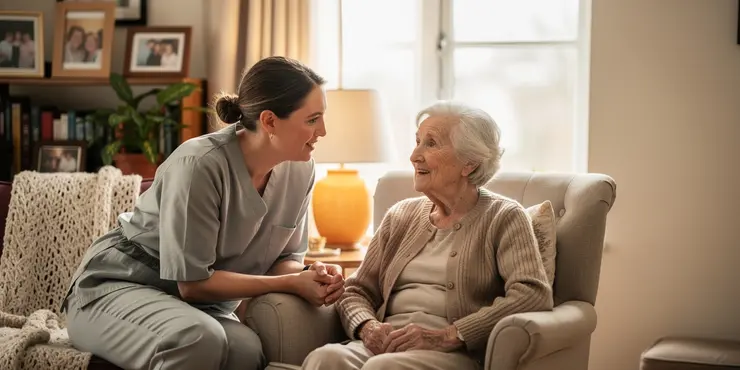
Dementia Care at Colten Care
Relevance: 44%
-

What financial support is available for people with dementia?
Relevance: 43%
-
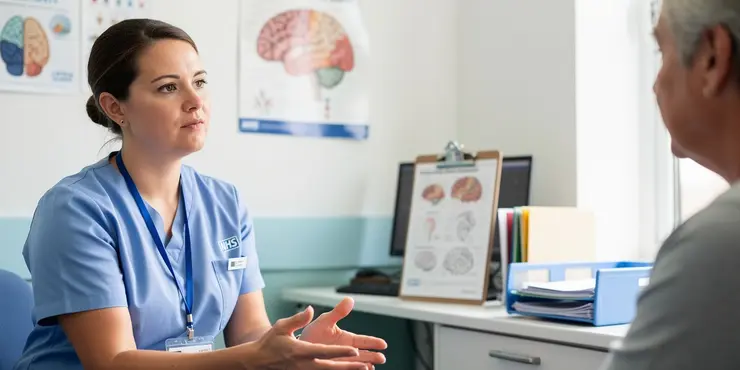
An introduction to frontotemporal dementia (FTD) (part 1/3)
Relevance: 40%
-
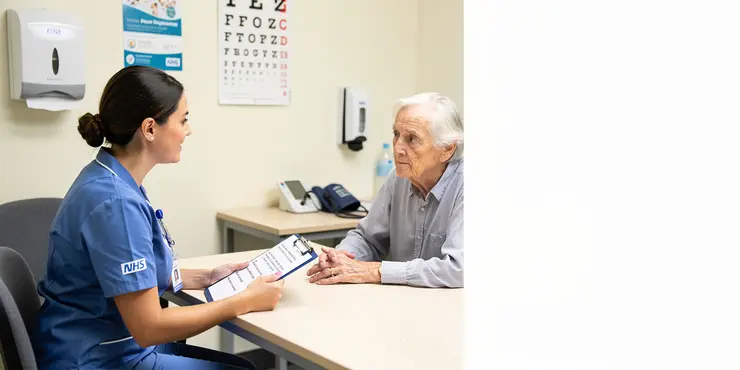
How is dementia diagnosed?
Relevance: 39%
-
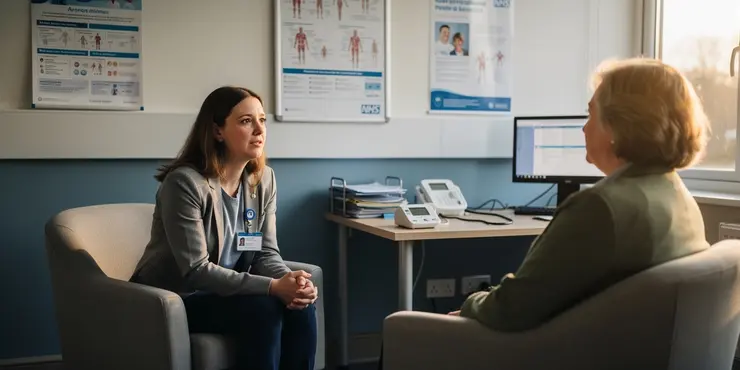
How does dementia progress over time?
Relevance: 38%
-
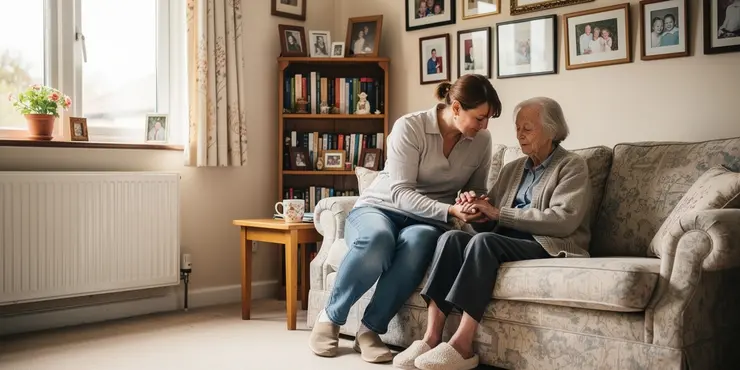
What role do carers play for those living with dementia?
Relevance: 37%
-
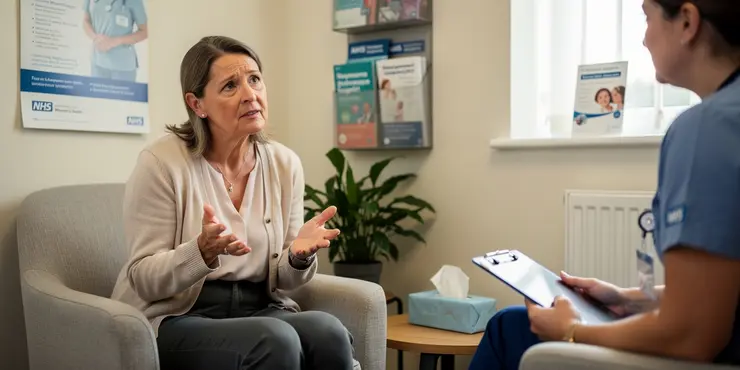
Is the age of menopause onset related to dementia risk?
Relevance: 37%
-
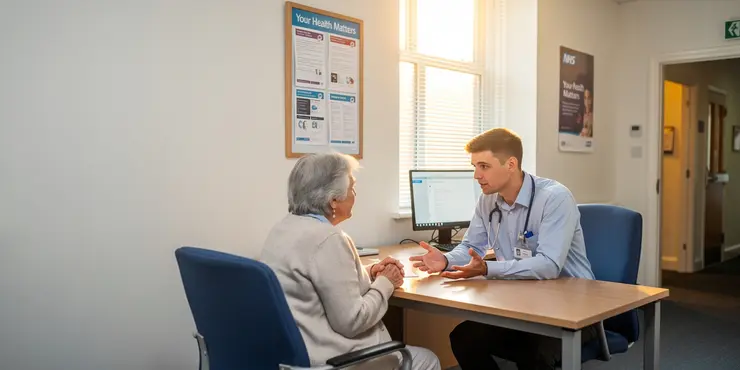
Dementia by Dr Alex Kakoullis, Coventry and Warwickshire Partnership NHS Trust
Relevance: 36%
-
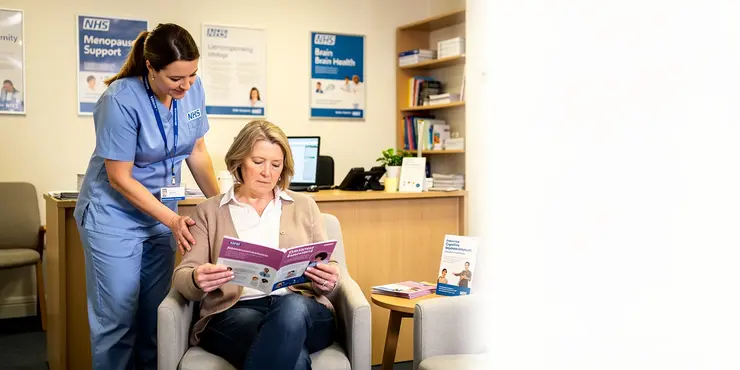
Is there scientific evidence linking menopause to dementia?
Relevance: 36%
-
Are there specific types of dementia linked to menopause?
Relevance: 36%
-
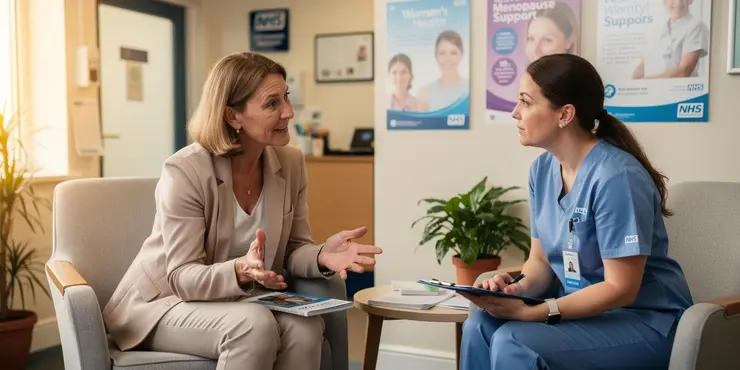
What are the links between menopause and dementia?
Relevance: 36%
-
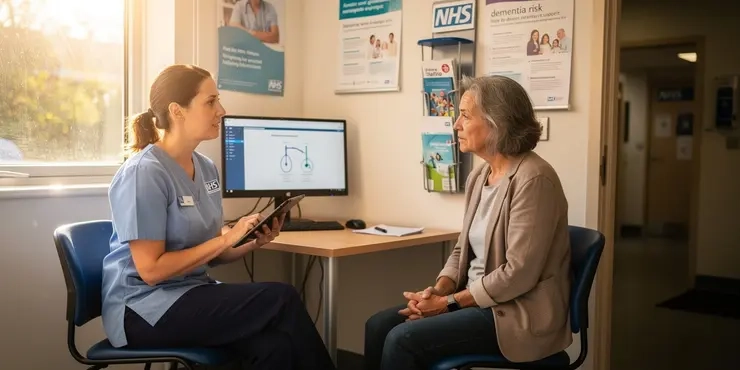
Do genetics play a role in dementia risk post-menopause?
Relevance: 35%
-
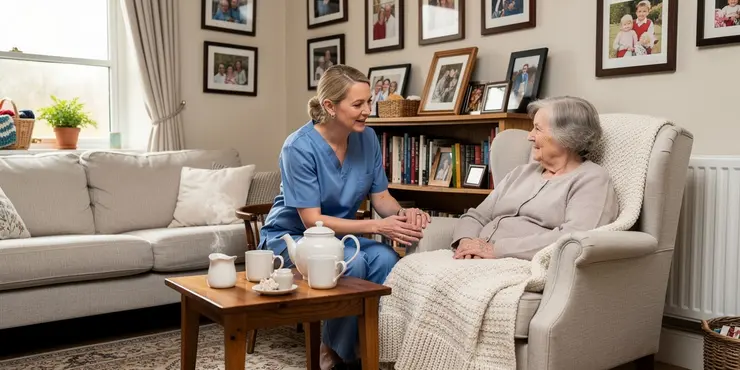
Can live-in care support individuals with dementia?
Relevance: 35%
-
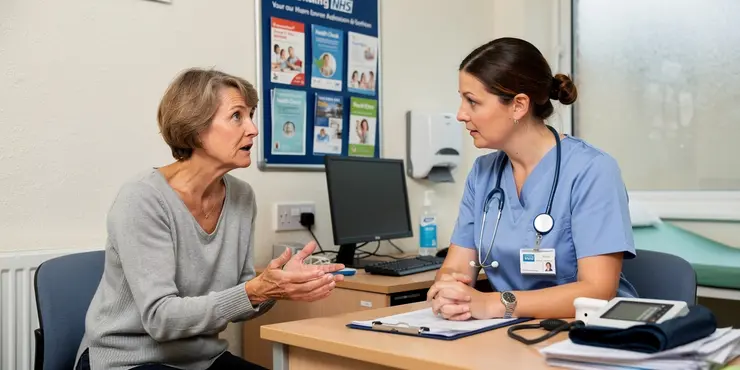
How common is it for women to develop dementia after menopause?
Relevance: 35%
-
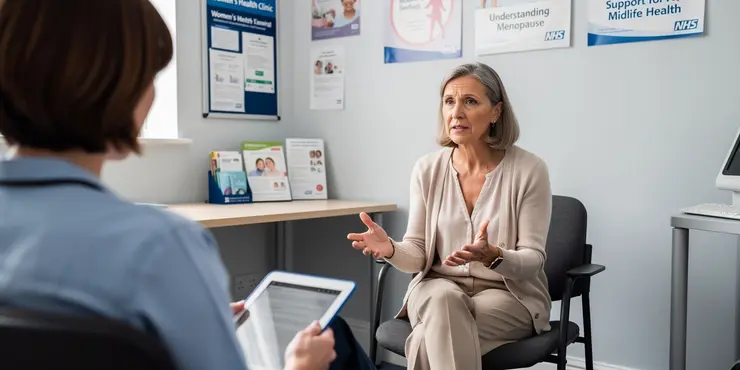
What further research is needed about menopause and dementia?
Relevance: 34%
-
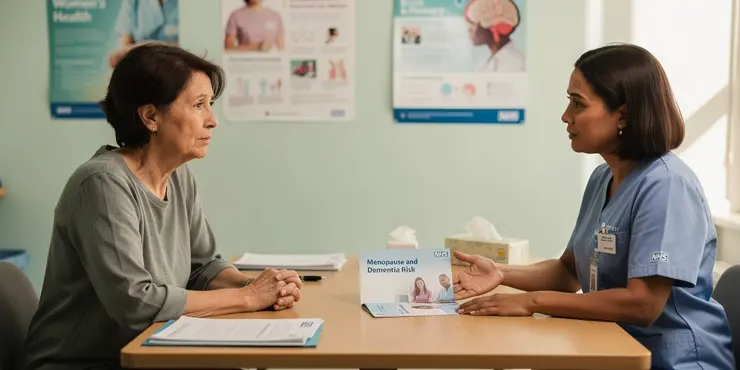
How does menopause potentially affect dementia risk?
Relevance: 34%
-
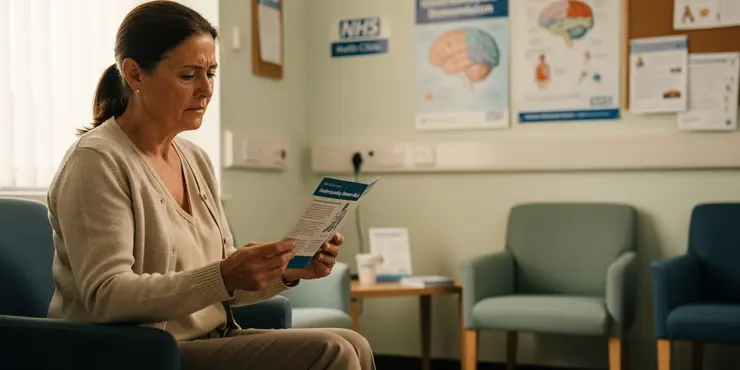
Do male and female brains age differently regarding dementia risk?
Relevance: 33%
-
What symptoms can overlap between menopause and the early stages of dementia?
Relevance: 33%
-
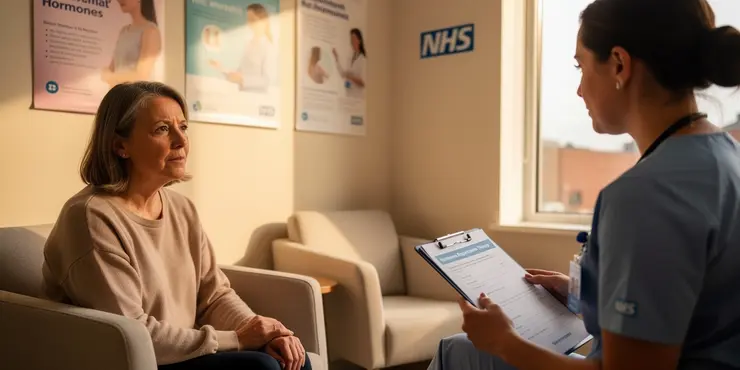
Can hormone replacement therapy (HRT) impact dementia risk?
Relevance: 32%
-
Are there any support groups for people with dementia in the UK?
Relevance: 32%
-
Are there any support groups for people with dementia in the UK?
Relevance: 32%
-

Can lifestyle changes during menopause help reduce dementia risk?
Relevance: 32%
-
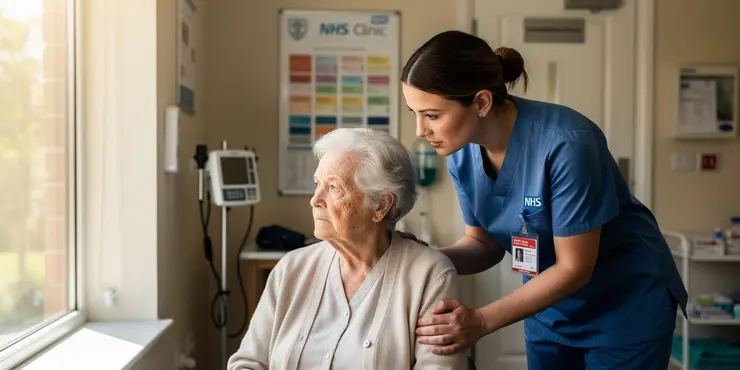
What is dementia?
Relevance: 31%
-
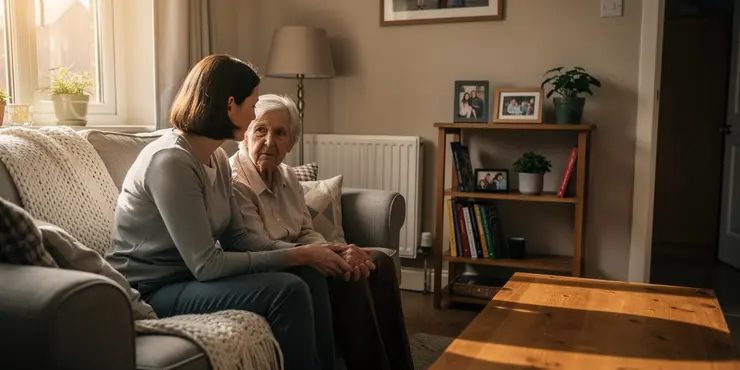
What online communities exist for carers of people with Alzheimer's?
Relevance: 30%
-
What financial support is available for people with dementia?
Relevance: 30%
-
What financial support is available for people with dementia?
Relevance: 30%
-
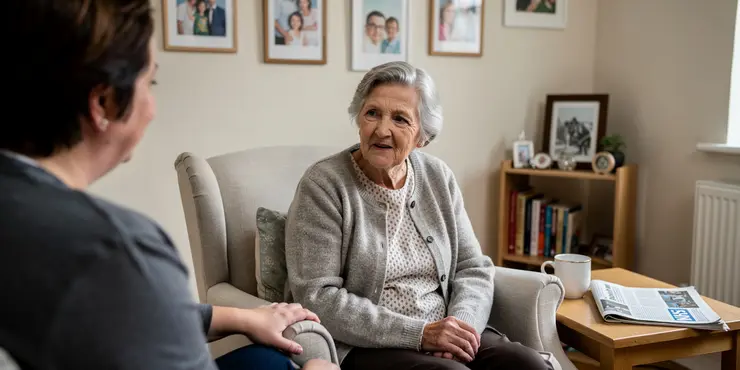
What are the common symptoms of dementia?
Relevance: 30%
-
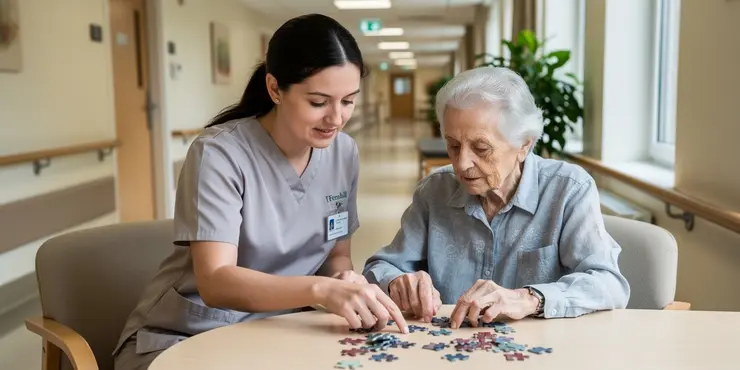
Fernhill Dedicated Dementia Care Home - a relatives perspective
Relevance: 29%
-
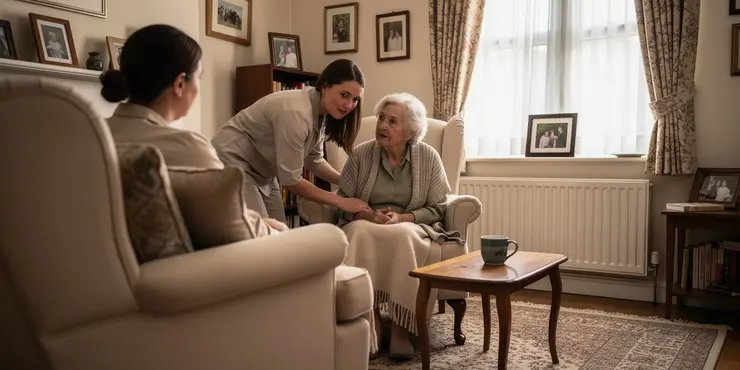
Living with changes in behaviour in frontotemporal dementia (FTD) (part 3/3)
Relevance: 27%
-

Anxiety in young people
Relevance: 27%
Understanding Dementia in Younger People
While dementia is often associated with older age, it can indeed affect younger individuals. This condition, known as young-onset dementia, affects people under the age of 65. Although it is less common, awareness and understanding are crucial, especially in the UK where it is estimated that over 42,000 individuals live with young-onset dementia.
Causes of Young-Onset Dementia
The causes of dementia in younger people can vary. Some cases may be linked to genetic factors. For instance, familial Alzheimer's disease, frontotemporal dementia, and Huntington's disease have known genetic components. Other underlying conditions, such as Multiple Sclerosis (MS), Parkinson’s disease, or traumatic brain injury, can also lead to the development of young-onset dementia. Moreover, lifestyle and environmental factors may play a role in some instances.
Symptoms and Diagnosis
Symptoms of young-onset dementia might be similar to those experienced by older individuals but can also include unique challenges. These challenges can involve language difficulties, organisational problems, and changes in behaviour or personality. Young-onset dementia is often misdiagnosed due to its rarity and the assumption that dementia primarily affects the elderly. Early and accurate diagnosis is essential for managing the condition effectively and planning for the future. It typically involves comprehensive neurological assessments and may require genetic testing, especially if there is a family history of dementia.
Impact on Work and Family
Younger individuals with dementia often face different challenges compared to older adults. Many are still in the workforce or have dependent children. This creates added stress, as they might struggle with employment and responsibilities at home. The financial implications are also significant, given that many might not qualify for pensions or age-related benefits due to their younger age. Support systems, such as counselling and community services, are crucial to help manage these pressures.
Support and Resources
In the UK, several organisations provide support and resources for individuals with young-onset dementia. The Alzheimer’s Society offers a wealth of information and support groups tailored to younger people and their families. Dementia UK and YoungDementia UK are also key organisations that provide guidance, resources, and community connections. Accessing these resources can help individuals and their families navigate the complexities of living with young-onset dementia.
Raising Awareness
Raising awareness about young-onset dementia is crucial for improving diagnosis rates and support. Public education can reduce stigma and promote understanding, ensuring that those affected can access necessary resources and live fulfilling lives. Continued research and funding are necessary to identify potential treatments and enhance quality of life for younger people with dementia.
Understanding Dementia in Younger People
Dementia is not just for older people. Young people can get it too. This is called young-onset dementia. It happens to people under 65. In the UK, over 42,000 people have young-onset dementia. It is important to know and understand this.
Causes of Young-Onset Dementia
Dementia in young people can have different causes. It can be due to genes. Some diseases like familial Alzheimer's, frontotemporal dementia, and Huntington's disease can run in families. Other health problems like Multiple Sclerosis (MS), Parkinson’s disease, or a hit to the head can cause it too. How we live and our surroundings might also matter.
Symptoms and Diagnosis
Young-onset dementia symptoms can be like those in older people. But, younger people might also have trouble with talking, organizing tasks, or their behavior might change. It is often not spotted because people think dementia is just for older folks. Finding out early is very important. Doctors do many tests and sometimes check family history by looking at genes.
Impact on Work and Family
Younger people with dementia face different problems. They might still have jobs or take care of kids. This can be very stressful. Money can be a big worry too, as they might not get pensions or certain benefits. Help from counselors and community groups is very important to reduce stress.
Support and Resources
In the UK, there is help for people with young-onset dementia. The Alzheimer’s Society has lots of information and support groups for younger people. Dementia UK and YoungDementia UK are other good places to find help, advice, and meet other people. Using these resources can make living with young-onset dementia easier.
Raising Awareness
It's important to talk about young-onset dementia. This helps it get noticed sooner and get more help. Teaching people about it can make it less scary and help others understand. More research and money is needed to find treatments and make life better for young people with dementia.
Frequently Asked Questions
Can dementia affect younger people?
Yes, while dementia is more common in older adults, it can also affect younger people. This is known as early-onset dementia.
What is early-onset dementia?
Early-onset dementia refers to dementia that occurs in individuals under the age of 65.
What are the common symptoms of early-onset dementia?
Common symptoms include memory loss, difficulty concentrating, confusion, and changes in behavior or personality.
What causes early-onset dementia?
Causes can include neurodegenerative diseases such as Alzheimer's, frontotemporal dementia, and genetic factors.
How is early-onset dementia diagnosed?
Diagnosis typically involves cognitive tests, medical history evaluation, neurological exams, and sometimes brain scans.
Is early-onset dementia hereditary?
Some forms of early-onset dementia can be hereditary, especially those related to certain genetic mutations.
What is the prevalence of early-onset dementia?
Early-onset dementia is relatively rare, affecting approximately 5% of all dementia cases.
What are the risk factors for early-onset dementia?
Risk factors include family history, genetics, head trauma, and lifestyle factors such as smoking and diet.
Can lifestyle changes reduce the risk of early-onset dementia?
Healthy lifestyle changes, including a balanced diet, regular exercise, mental stimulation, and avoiding tobacco and excessive alcohol, may help reduce risk.
Is there a cure for early-onset dementia?
There is currently no cure for early-onset dementia, but treatments are available to manage symptoms and improve quality of life.
What treatments are available for early-onset dementia?
Treatments may include medications to manage symptoms, therapy, and support groups for both patients and caregivers.
How does early-onset dementia differ from late-onset dementia?
Early-onset dementia begins before age 65, often with a faster progression and greater focus on genetic factors.
Can younger people accurately recognize the symptoms of early-onset dementia?
Recognizing symptoms can be challenging for younger people as they might attribute them to stress or other conditions.
What resources are available for those affected by early-onset dementia?
Resources include support groups, counseling services, and organizations like the Alzheimer's Association.
How can family members support someone with early-onset dementia?
Family members can provide support by staying informed, being patient, helping manage appointments, and encouraging healthy routines.
What impact does early-onset dementia have on employment?
Early-onset dementia can affect job performance, and individuals may need to seek workplace accommodations or consider early retirement.
Can early-onset dementia affect mental health?
Yes, it can lead to mental health issues such as depression, anxiety, and stress both in patients and their caregivers.
Is early intervention important in managing early-onset dementia?
Early intervention can help slow progression, improve quality of life, and provide access to support and resources sooner.
Are there support groups specifically for younger individuals with dementia?
Yes, some organizations offer support groups and services specifically tailored for younger individuals with dementia and their families.
How can employers assist employees dealing with early-onset dementia?
Employers can support employees by providing flexible work arrangements, creating an understanding workplace environment, and offering access to resources.
Can Young People Get Dementia?
Dementia is a sickness of the brain. It makes it hard to remember things or think clearly.
Most people with dementia are older.
But sometimes, young people can get it too.
If you are worried, talk to a doctor. They can help you learn more.
Yes, dementia mostly happens to older people, but younger people can get it too. This is called early-onset dementia.
What is early-onset dementia?
Dementia is when people have trouble remembering things or thinking clearly.
Early-onset means it happens to younger people, usually under 65 years old.
If you or someone you know has early-onset dementia, it is important to talk to a doctor. They can help.
Using pictures or writing things down can help with remembering.
Talking to family and friends about how you feel can also be helpful.
Early-onset dementia happens when a person younger than 65 years old gets dementia.
What signs show up early when someone has dementia?
Dementia is a problem with the brain. It can make thinking and remembering hard. Here are some things to look for:
- Forgetting things often.
- Getting confused easily.
- Finding it hard to talk or write.
- Feeling mixed up about time or place.
- Having trouble with everyday tasks, like making a snack or getting dressed.
If someone shows these signs, it is good to talk to a doctor. They can help. Using pictures or writing things down can also be helpful for understanding and remembering. Talking to friends or family can make it easier, too.
Signs of the problem are forgetting things, finding it hard to focus, feeling mixed up, and acting differently than usual.
What makes someone get dementia early?
Dementia means the brain doesn't work as well as it should. When it happens to younger people, it's called early-onset dementia.
Here are some things that can cause it:
- Genes: It can run in families. If your parents or grandparents had it, you might get it too.
- Injuries: Getting hurt badly in the head can make dementia start early.
- Illnesses: Some sicknesses can cause brain problems.
- Lifestyle: The way we live can affect our brains. Eating well, staying active, and not smoking can help keep your brain healthy.
If you want more help with reading, you can try:
- Audiobooks: Listen to the story while you follow along with the words.
- Reading apps: Some apps can read the text out loud to you.
Always ask someone for help if you are unsure.
Reasons can include brain diseases like Alzheimer's, frontotemporal dementia, and genes you get from your family.
How do doctors find out if someone has early-onset dementia?
Doctors use simple checks to see if someone has early-onset dementia.
- Memory Tests: Doctors might ask questions to check memory.
- Talk with Family: Family members can tell doctors about changes in the person's behavior.
- Brain Scans: Pictures of the brain can show any problems.
If you're worried about memory or thinking problems, it's good to talk to a doctor soon. They can help figure out what is happening.
To find out what's happening, doctors do some tests. They might give you simple thinking games to play. They will ask about your health in the past. They also check how your brain is working. Sometimes they take pictures of your brain to look at it better.
It can help to use drawings or pictures if you have trouble with words. You can ask someone to explain things slowly or use apps that help with reading.
Is early-onset dementia passed down from parents?
Early-onset dementia can sometimes run in families. This means it can be passed down from parents to children through genes.
If someone in your family has early-onset dementia, it might be a good idea to talk to a doctor. They can help you understand more.
There are also tools to help you learn about dementia. Some examples are talking books or videos that explain things in a simple way.
Some types of dementia that start early can run in families. This is more likely if there are changes in certain genes.
How common is early-onset dementia?
Early-onset dementia is not very common. It happens in about 5 out of 100 dementia cases.
What can make early-onset dementia happen?
Some things can make early-onset dementia more likely:
- Genes from your family
- Bad head injuries
- Drinking too much alcohol
- Problems with the heart
Helpful tools can make reading easier:
- Ask an adult to read with you
- Use pictures to understand better
- Use reading apps for help
There are things that can make health risks higher. These include:
- If other people in your family have the same health problems, called family history.
- Your genes, which are part of the information inside your body from your parents.
- Getting hit hard on the head, called head trauma.
- Things you choose to do, like smoking or the foods you eat.
Here are some ideas to help with understanding and learning:
- Use pictures to show what words mean.
- Watch videos that explain things.
- Ask someone you trust to help explain things.
- Take breaks so you don’t feel tired.
Can changing the way we live help stop dementia from happening early?
Sometimes people can get a sickness in their brain called dementia. This can happen when they are quite young. We want to know if doing things differently in our lives can help stop this from happening.
Here are some ways that might help:
- Eat healthy food: Try to eat lots of fruits and vegetables.
- Exercise: Moving your body by playing, walking, or riding a bike helps your brain.
- Good sleep: Make sure you get enough sleep every night so you feel rested.
- Stay social: Talk and play with friends and family.
- Learn new things: Try puzzles, reading, or learning something new to keep your brain busy.
If you are worried about dementia, talk to a doctor or a trusted adult. They can help you find the best way to stay healthy.
To stay healthy, try to do these things:
- Eat different kinds of good food.
- Exercise often.
- Do fun activities that make you think.
- Do not smoke.
- Do not drink too much alcohol.
These steps can help you feel better and stay healthy.
If you find it hard to remember, you can:
- Write notes to remind yourself.
- Ask a friend or family member to help.
Can early-onset dementia be cured?
Dementia is when the brain has trouble working.
Sometimes, people get it when they are young. This is called early-onset dementia.
Right now, there is no cure. But doctors can help with medicine and other treatments.
For help understanding, you can ask someone you trust to explain more.
There are also apps and tools that can read text out loud to you.
Right now, there is no way to make early-onset dementia go away completely. But there are things that can help with the symptoms and make life better.
What helps if someone gets dementia early?
Dementia means problems with memory and thinking. Sometimes, it happens to people when they are younger.
Here are ways to help:
- Doctors can give medicine. This can help with memory and mood.
- Talking to a specialist can help. They know a lot about dementia.
- Training the brain with puzzles and games can be useful.
- Staying healthy by eating well and exercising is important.
Ask a doctor or nurse for more help. They can give you good advice.
You can get help with medicine to feel better, talking to someone who listens and helps, and meeting with groups of people who understand what you are going through. This help is for the person who is sick and for the people who take care of them.
What is the difference between early-onset and late-onset dementia?
Dementia is an illness that affects the brain. People with dementia might forget things and get confused.
Early-onset dementia means it starts when a person is younger, usually before 65 years old.
Late-onset dementia starts when a person is older, usually after 65 years old.
Tools that can help include:
- Making lists to remember things.
- Using a calendar to keep track of days.
- Asking family or friends for help.
Early-onset dementia starts before a person is 65 years old. It can get worse more quickly and often runs in families.
Do young people know the signs of dementia that starts early?
Some young people might not know the early signs of dementia. Dementia makes it hard to remember and think. It can happen to people who are not very old.
To help notice signs, we can use pictures or videos. Talking with someone who knows about dementia can also help. If you are worried, ask a grown-up or a doctor.
It can be hard for young people to notice signs of illness. They might think these signs are just stress or something else.
What help is there for people with early-onset dementia?
People who get dementia early can get help.
Here are some things that can help:
- Support groups: Talk and share with others who have dementia.
- Doctors and Nurses: They can give advice and medicine.
- Family and Friends: They can give care and love.
- Memory Tools: Use reminders and notes to remember things.
It is important to ask for help when you need it. You can use pictures and simple words to make things easier to understand.
You can find help from support groups, talking with counselors, and groups like the Alzheimer's Association.
How can family members help someone with early-onset dementia?
Dementia is a sickness that makes it hard for people to remember things. It can happen at a young age, which is called early-onset dementia.
Here are some easy ways to help:
- Be patient and kind. Someone with dementia might forget things or get confused. It is important to stay calm and nice.
- Talk clearly and slowly. Use simple words and sentences to make it easier for them to understand.
- Make a schedule. A daily routine can help them know what to expect each day.
- Use labels. Put labels on things around the house, like "fridge" or "bathroom," to help them find things.
- Do easy activities together. Simple games or puzzles can be fun and help with memory.
- Give gentle reminders. Help them remember things by saying little reminders.
Families can also use apps or devices that help with reminders and routines.
Family can help by:
- Learning more about what's happening
- Being patient and kind
- Helping with appointments
- Encouraging good daily habits
How does early-onset dementia affect work?
Sometimes, young people can have dementia. This is called early-onset dementia. It makes them forget things and makes their brain work differently.
When someone gets early-onset dementia, it can make working hard. They might:
- Forget tasks or instructions.
- Have trouble making choices.
- Feel tired more easily.
People with early-onset dementia can use special tools to help, like:
- Writing things down in a notebook or on a calendar.
- Using reminder apps on their phone.
These tools can help people remember things and keep working longer.
Dementia that happens early in life can make work harder. People might need special help at work or think about stopping work earlier than planned.
Does getting dementia early hurt your feelings or mind?
Yes, it can make people feel sad, worried, and stressed. This happens to both patients and the people who take care of them.
Is it important to help people early if they have dementia?
Getting help early can make things better. It can slow down problems, make life nicer, and give you help and tools sooner.
Are there groups that help young people with dementia?
Yes, there are groups that help young people with dementia. These groups are safe places where you can talk and get help. You can meet other young people who know what you are going through. Sometimes, these groups meet in person, or you can join them online. Talking to others can make you feel better and less alone.
To find a group, you can:
- Ask your doctor.
- Look online for young person dementia support.
- Ask family or friends for help finding a group.
Yes, some places have special groups and help for young people with dementia and their families.
How can bosses help workers with early dementia?
Bosses can support workers who have early dementia by doing a few simple things:
- Talk and Listen: Have regular chats with the worker to see how they are feeling and listen to their needs.
- Make Work Simple: Break down tasks into smaller steps to make them easier to follow.
- Set Reminders: Use tools like calendars or phone alerts to help remember tasks and appointments.
- Give Extra Time: Allow more time to finish work, so the worker doesn’t feel rushed or stressed.
- Be Patient: Show understanding and patience, as tasks may take longer to complete.
- Offer Training: Provide training or tools to help manage symptoms and stay organized.
These steps can make work life better for someone with early dementia.
Bosses can help workers by letting them choose when they work, making the workplace friendly, and giving them tools and help they need.
Useful Links
This website offers general information and is not a substitute for professional advice.
Always seek guidance from qualified professionals.
If you have any medical concerns or need urgent help, contact a healthcare professional or emergency services immediately.
Some of this content was generated with AI assistance. We’ve done our best to keep it accurate, helpful, and human-friendly.
- Ergsy carfully checks the information in the videos we provide here.
- Videos shown by Youtube after a video has completed, have NOT been reviewed by ERGSY.
- To view, click the arrow in centre of video.
- Most of the videos you find here will have subtitles and/or closed captions available.
- You may need to turn these on, and choose your preferred language.
- Go to the video you'd like to watch.
- If closed captions (CC) are available, settings will be visible on the bottom right of the video player.
- To turn on Captions, click settings .
- To turn off Captions, click settings again.
More Items From Ergsy search
-

Can dementia affect younger people?
Relevance: 100%
-

Are younger people being diagnosed with bowel cancer more frequently?
Relevance: 59%
-

Are there any support groups for people with dementia in the UK?
Relevance: 59%
-
Can dementia affect younger people?
Relevance: 56%
-
Can dementia affect younger people?
Relevance: 56%
-
Living with dementia | NHS
Relevance: 49%
-

The role of care homes dedicated to caring for people living with dementia and memory loss
Relevance: 48%
-

What is dementia?
Relevance: 46%
-

Early onset dementia | NHS
Relevance: 45%
-

Is there a cure for dementia?
Relevance: 45%
-

Dementia Care at Colten Care
Relevance: 44%
-

What financial support is available for people with dementia?
Relevance: 43%
-

An introduction to frontotemporal dementia (FTD) (part 1/3)
Relevance: 40%
-

How is dementia diagnosed?
Relevance: 39%
-

How does dementia progress over time?
Relevance: 38%
-

What role do carers play for those living with dementia?
Relevance: 37%
-

Is the age of menopause onset related to dementia risk?
Relevance: 37%
-

Dementia by Dr Alex Kakoullis, Coventry and Warwickshire Partnership NHS Trust
Relevance: 36%
-

Is there scientific evidence linking menopause to dementia?
Relevance: 36%
-
Are there specific types of dementia linked to menopause?
Relevance: 36%
-

What are the links between menopause and dementia?
Relevance: 36%
-

Do genetics play a role in dementia risk post-menopause?
Relevance: 35%
-

Can live-in care support individuals with dementia?
Relevance: 35%
-

How common is it for women to develop dementia after menopause?
Relevance: 35%
-

What further research is needed about menopause and dementia?
Relevance: 34%
-

How does menopause potentially affect dementia risk?
Relevance: 34%
-

Do male and female brains age differently regarding dementia risk?
Relevance: 33%
-
What symptoms can overlap between menopause and the early stages of dementia?
Relevance: 33%
-

Can hormone replacement therapy (HRT) impact dementia risk?
Relevance: 32%
-
Are there any support groups for people with dementia in the UK?
Relevance: 32%
-
Are there any support groups for people with dementia in the UK?
Relevance: 32%
-

Can lifestyle changes during menopause help reduce dementia risk?
Relevance: 32%
-

What is dementia?
Relevance: 31%
-

What online communities exist for carers of people with Alzheimer's?
Relevance: 30%
-
What financial support is available for people with dementia?
Relevance: 30%
-
What financial support is available for people with dementia?
Relevance: 30%
-

What are the common symptoms of dementia?
Relevance: 30%
-

Fernhill Dedicated Dementia Care Home - a relatives perspective
Relevance: 29%
-

Living with changes in behaviour in frontotemporal dementia (FTD) (part 3/3)
Relevance: 27%
-

Anxiety in young people
Relevance: 27%


